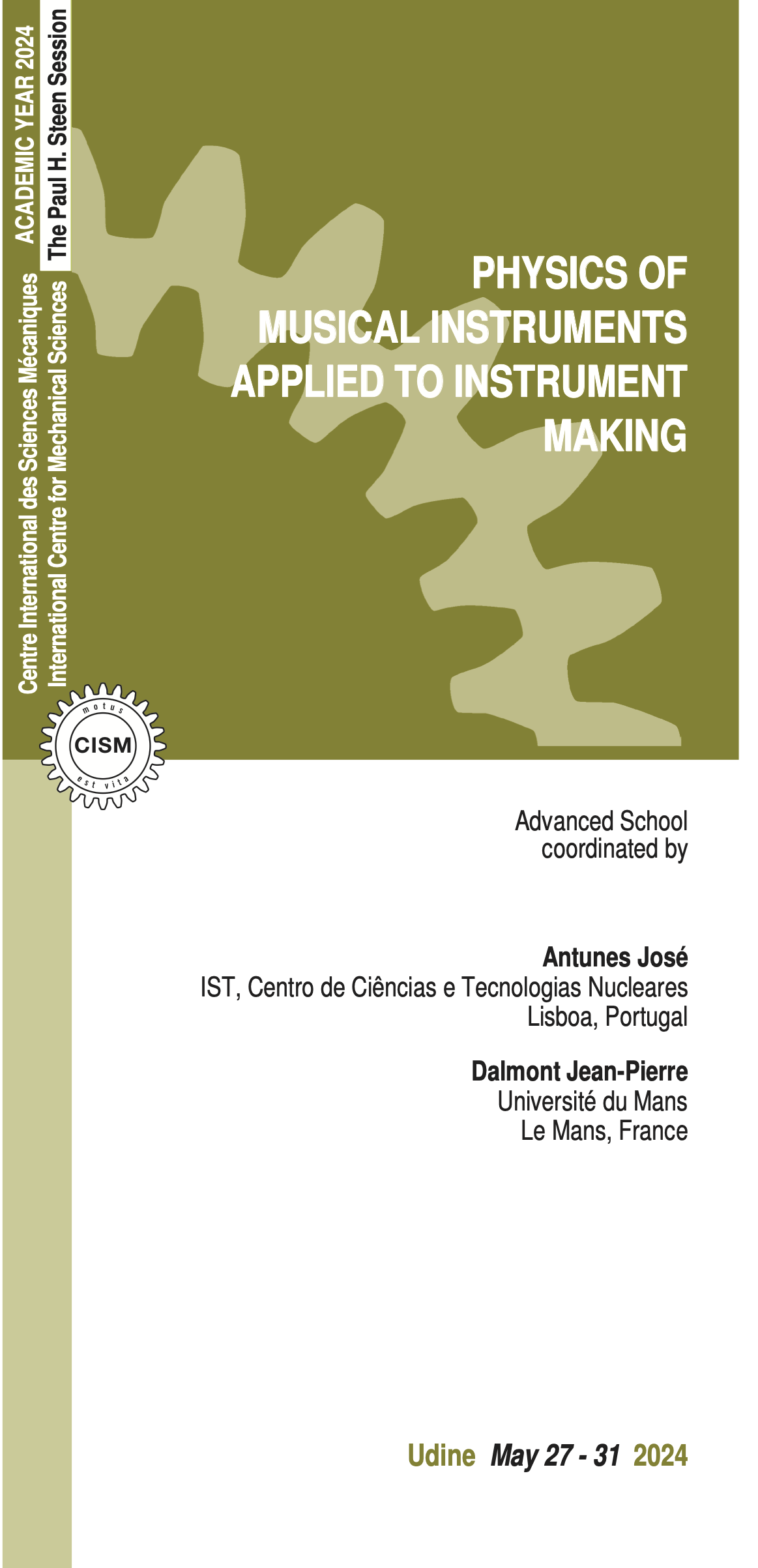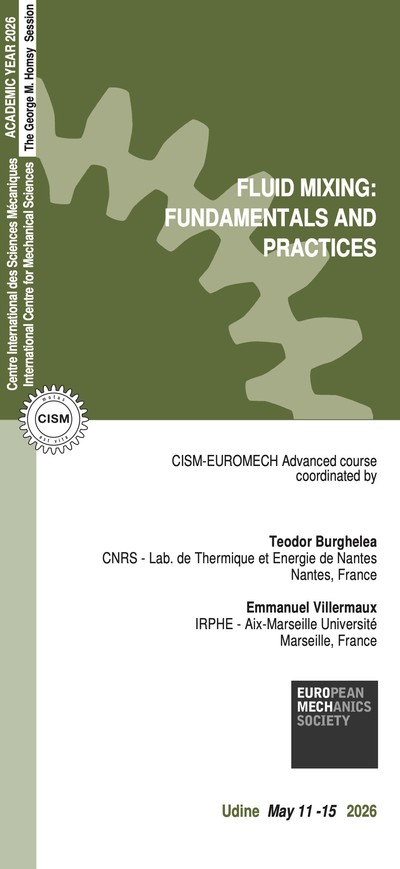In the last forty years, the field of musical instrument physics has matured significantly, giving rise to a better understanding of the behaviour of the instruments. This has led to advanced manufacturing approaches, ranging from computer-aided design to quality control and process optimisation. Despite these advancements, many craftsmen still rely heavily on empirical methods, overlooking the full potential of research-driven approaches.
The objective of this course is to provide a comprehensive overview of the knowledge in musical instrument physics and its practical application in musical instrument making. The course will focus on three key aspects.
Firstly, the basics of the physics of musical instruments will be described. In other words, the role and properties of each component will be analysed, considering how they all work together. This will be highlighted by the transition from mechanics to sound, the essential characteristics of instruments, with illustrating concepts such as harmonicity, auto-oscillations, and the influence of materials, including composite / synthetic materials.
Secondly, the tools developed by physicists and engineers over the past century to enhance instrument design and manufacturing will be reviewed. Topics covered include numerical aspects of instrument virtual synthesis, modelling interactions between interconnected subsystems, solving auto-oscillation processes, optimising instruments, and essential experimental techniques for instrumental characterisation (mechanical and acoustical).
All along the course, applications to real instruments will be given. These case studies will showcase the modelling and optimisation of instruments, historical instrument reconstruction, and the application of acoustic and mechanical measurement tools to control the manufacturing process at different stages.
The course is tailored for doctoral students and young researchers specialising in musical acoustics, as well as senior researchers, engineers in musical instrument manufacturing companies, and instrument makers with a scientific inclination.
N. H. Fletcher, T. D. Rossing, “The physics of Musical Instruments”, Springer, 1998.
A. Chaigne, J. Kergomard, “Acoustics of musical instruments”, Belin, 2008.
S. Bilbao, “Numerical Sound Synthesis: Finite Difference Schemes and Simulation in Musical Acoustics” John Wiley & Sons, Ltd, 2009.
J. Woodhouse, “The science of musical instruments”, https://euphonics.org/
Joe Wolfe, “Music science at UNSW”, http://newt.phys.unsw.edu.au/music/
Nederveen, “Acoustical Aspects of Woodwind Instruments”, Northern Illinois University Press, 1998.
M. Campbell, J. Gilbert, A. Myers, “The science of brass instruments”, Springer, 2021.
7 lectures on: Functional anatomy of musical instruments, geometric nonlinearities, optimization of musical instruments, Solid mobility measurement and modal analysis.
5 lectures on: Time discretization of lumped systems, finite differences, physical modelling of collisions, friction modelling and applications to musical instruments.
7 lectures on: Musical sound perception, resonators modeling and especially harmonic resonators, sound radiation, acoustical resonator measurements.
5 lectures on: Space discretization (FEM, Finite differences Modal synthesis), simulation strategies for wave propagation in strings, tubes, bars, membranes and plates. Development of real-time simulation software.
6 lectures on: Auto-oscillating instruments and solving auto-oscillation processes, non-linear propagation (brassiness).
5 lectures on: Materials for musical instruments and neasurement of materials properties, tuning and modes.
ADMISSION AND ACCOMMODATION
The course is offered in a hybrid format, allowing participants the flexibility to attend either in person or remotely via the Microsoft Teams platform.
Limited spots are available for on-site attendance and will be allocated on a first-come, first-served basis.
The registration fees are:
- On-site participation: 600.00 Euro + VAT*
Includes a complimentary bag, five fixed menu buffet lunches, hot beverages, downloadable lecture notes.
Deadline for on-site application is April 27, 2024.
- Live Streaming Online Participation: 250.00 Euro + VAT*
Includes downloadable lecture notes.
Deadline for online application is May 15, 2024.
Application forms should be submitted online through the website: http://www.cism.it.
A confirmation message will be sent to accepted participants.
Upon request, a limited number of on-site participants can be accommodated at CISM Guest House at the price of 35 Euro per person/night (contact: foresteria@cism.it)
* where applicable (bank charges are not included) - Italian VAT is 22%.
CANCELLATION POLICY
Applicants may cancel their registration and receive a full refund by notifying the CISM Secretariat in writing (via email) no later than:
- April 27, 2024 for on-site participants (no refunds after the deadline);
- May 15, 2024 for online participants (no refunds after the deadline).
Cancellation requests received before these deadlines will be subject to a 50.00 Euro handling fee. Incorrect payments are also subject to a 50.00 Euro handling fee.
GRANTS
A limited number of participants from universities and research centres who do not receive support from their own institutions can request a waiver of the registration fee and/or free lodging.
Requests should be sent to the CISM Secretariat by March 27, 2024 along with the applicant's curriculum vitae and a letter of recommendation from the head of the department or a supervisor confirming that the institute cannot provide funding. Preference will be given to applicants from countries that sponsor CISM.





